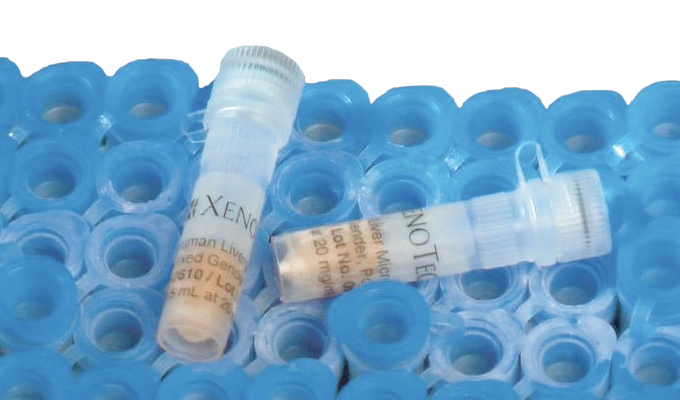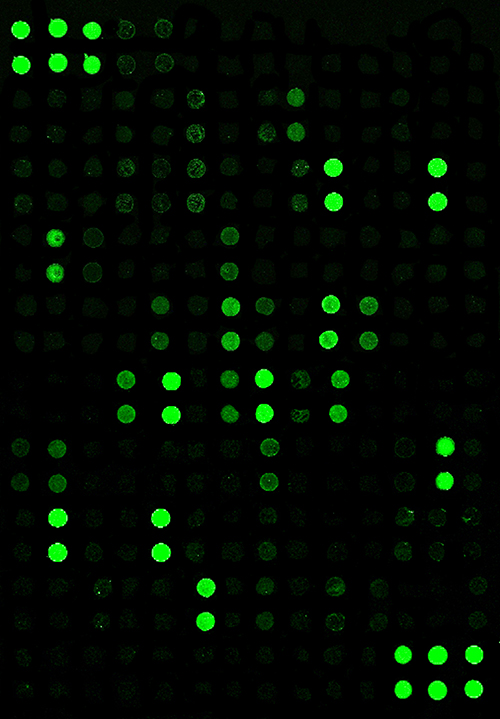Rockland Immunochemicals, Inc., (Rockland) provide the highest quality antibodies to the academic, biopharma, and diagnostic industries for use in basic research, assay development, preclinical and clinical studies, and bioprocessing. With facilities in Pennsylvania established since 55 years ago, Rockland manufactures products ideally suited for integration into critical assays such as western blotting, immunohistochemistry (IHC), immunofluorescence microscopy (IF), ELISA, flow cytometry, and 2D imaging. Their antibodies show remarkable quality and reproducibility from batch to batch. Their popular anti-RFP is one example out of many.
Demonstrating Rockland’s commitment in this matter (manufacturing antibodies of high quality and reproducibility), Rockland’s CSO, Dr. Carl Ascoli, testified at the US National Academies of Sciences, Engineering and Medicine’s third of six public sessions on Reproducibility and Replicability in Science on April 18th this year.
The committee, composed of 15 subject matter experts, will assess what is known and identify areas that need more information regarding issues of replication and reproducibility; consider if the lack of replication and reproducibility impacts the health of science and the public’s perception; and draw conclusions and make recommendations to Congress that may have consequences affecting levels of US government funding.
Christina Rowley, Marketing Communications Manager at Rockland Immunochemicals, Inc. reports on Dr. Ascoli’s statements at this event: “While data irreproducibility of life science research tools has been reported to be caused by faults in study design, biological reagents, protocols, data analysis and reporting, a disproportionate amount of media attention has focused on biological reagents including cell lines, antibodies and animal models.” Dr. Ascoli went on to explain that Rockland and other leading antibody manufacturers and resellers, along with funding agencies and some journals, are embracing change that will make a difference. For instance:
(1) better use of standards and controls can be made when collecting experimental data;
(2) the ‘knowledge gap” that has resulted from outsourcing antibody technology can be addressed;
(3) funding agencies can require precise description of reagents and methods to foster reproducibility;
(4) journals can publish all necessary details of reagents and protocols critical for reproducibility; and
(5) antibody manufacturers and resellers can adopt immunoassay specific validation guidelines and provide greater transparency when describing antibody production, screening methods and release criteria.
Opinion leaders testifying at this session challenged whether a “crisis” of reproducibility exists, as some have claimed in the literature, especially when considering that the clear majority of research performed results in the collection of high quality data sufficient to support and reproduce scientific claims. For instance, the pace at which new treatments have accelerated from the bench to the clinic has resulted in an explosion of breakthroughs in medicine, and antibodies are central to the discovery, diagnosis and cure of many diseases that just a decade ago were considered to have poor patient outcomes. The root causes of data irreproducibility identified at this meeting were biases in experimental design, biases in statistical analysis, the resultant inaccuracies of mathematical standards and constants, and the inherent variability that exists when biological reagents are used. Focus on these causative factors is imperative as the stakes are high. One economist speculated that the potential economic impact of data irreproducibility, especially for pre-clinical and clinical applications, ranges from 190 to 380 billion US dollars, cumulatively.
The committee was given a timeline to assess issues pertaining to reproducibility and replication, hear testimony by subject matter experts, deliberate and complete their investigations within approximately 18 months of the start of activities in October 2017. At the conclusion, a written report will be issued to US Congress that includes an assessment of current activities to improve reproducibility and replication highlighting examples of good practices and examine factors that adversely affect reproducibility and replication.
Monya Baker had alerted the research community already in 2016 by publishing a paper in Nature using data from a survey performed on 1500 scientists, where more than 70% of researchers have tried and failed to reproduce another scientist’s experiments, and more than half have failed to reproduce their own experiments !
Similar initiatives are currently in place in Europe to better analyze and control data reproducibility in scientific publications. Feel free to leave a comment below to share your own thoughts on this topic.
Rockland Immunochemicals Inc. high quality, validated antibodies are available throughout Europe from tebu-bio.



